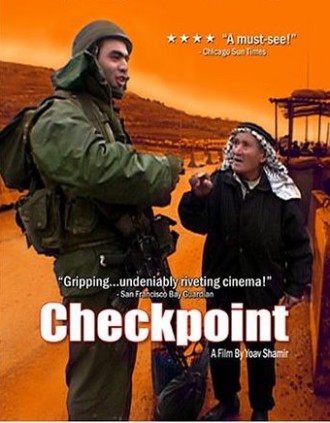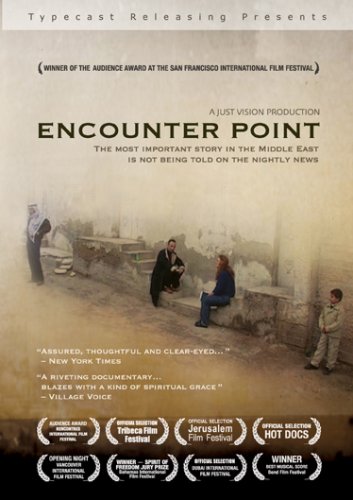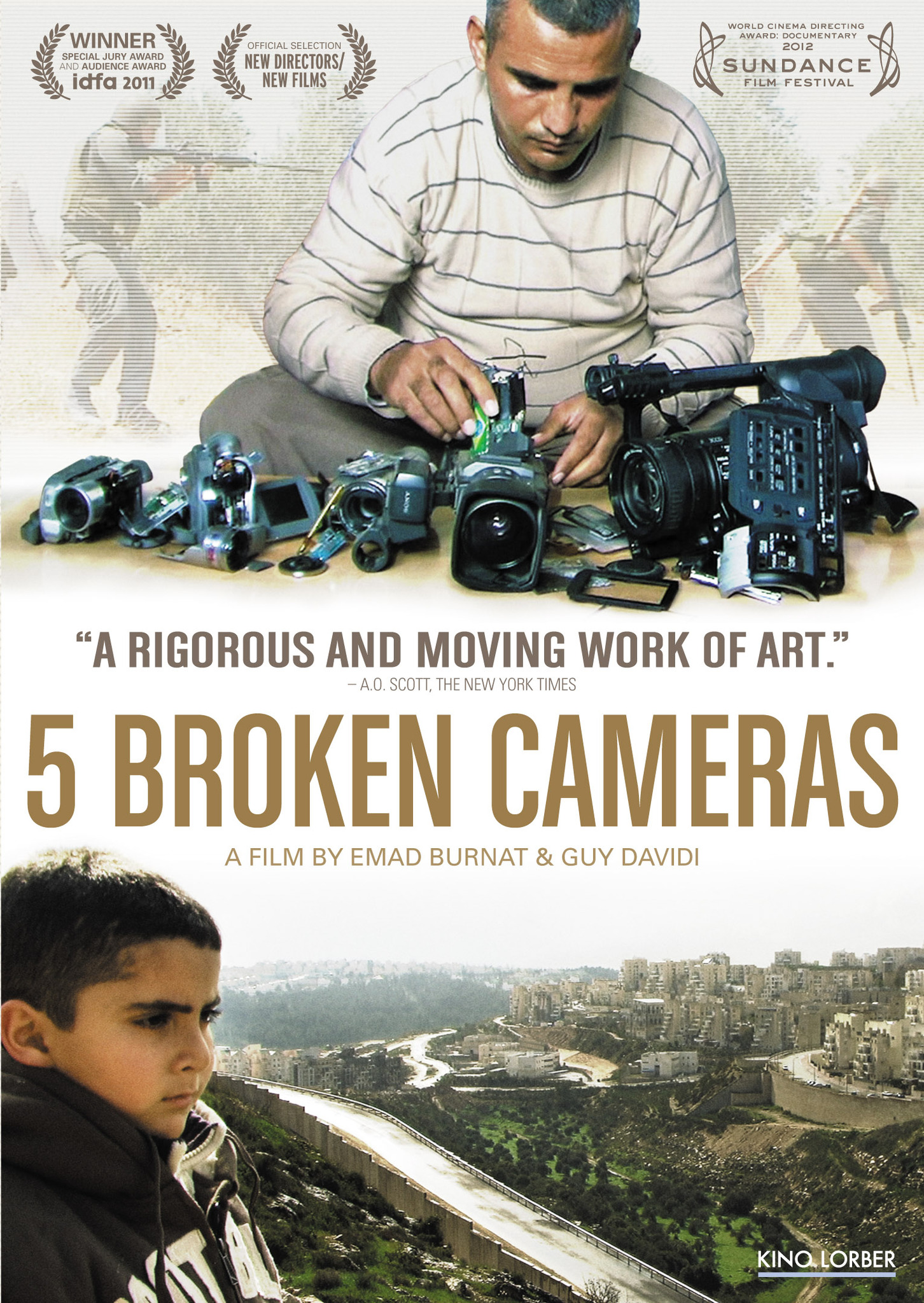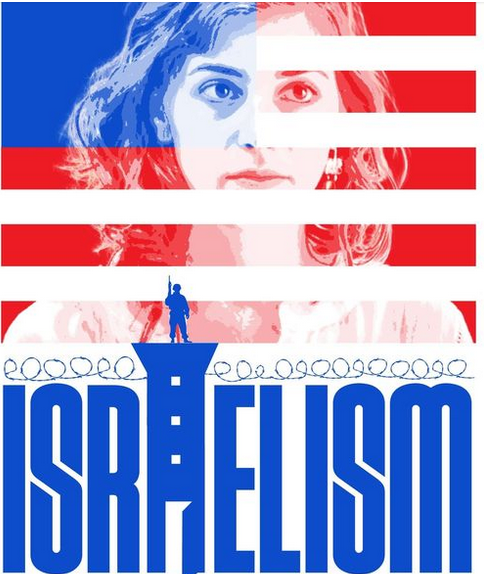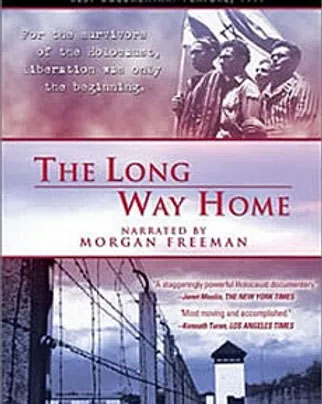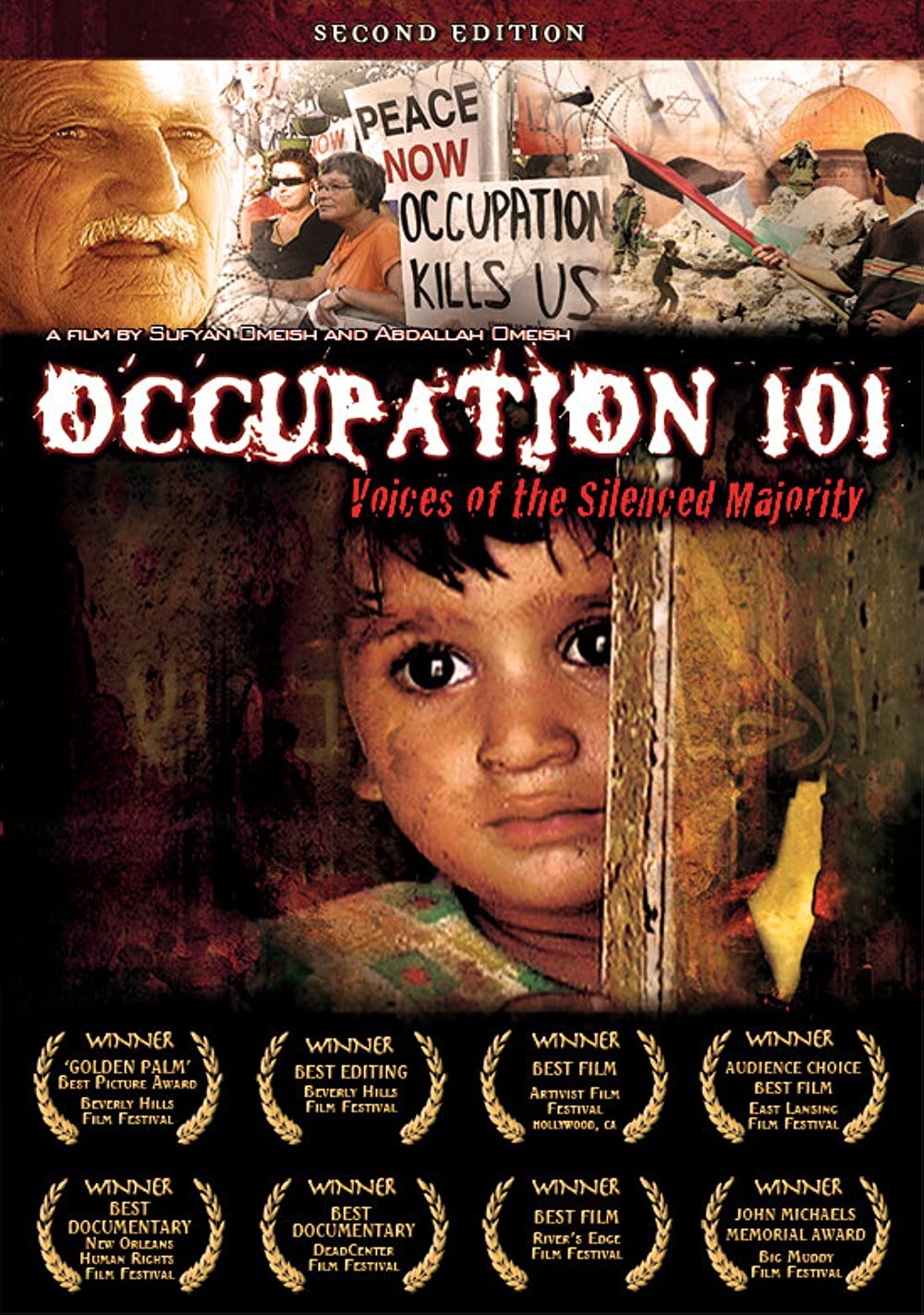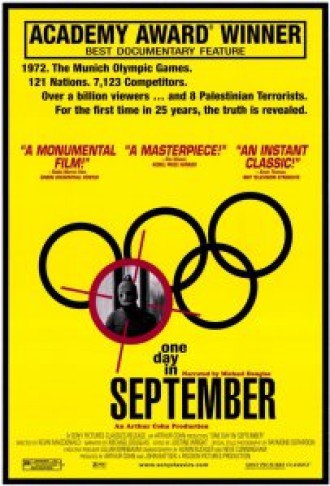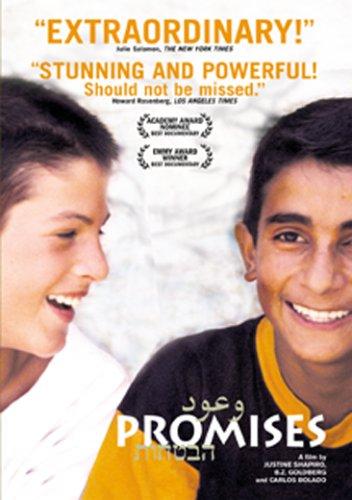Encounter Point
Directed by Ronit Avni and Julia Bacha
Just Vision Films
Arabic, English, Hebrew
85 minutes
The documentary follows the stories of a South African-Israeli mother, a former settler, a former Palestinian protestor, an Israeli father, a Palestinian Christian father and a Palestinian ex-prisoner, all of whom are dealing with the loss of a loved one due to the conflict.
Five Broken Cameras
Distributed by Kino Lorber
Produced and Directed by Emad Burnat and Guy Davidi
Hebrew/Arabic; English subtitles
90 minutes
This heavily edited, agenda-driven film purports to document the daily lives of the Palestinian film-maker and his fellow villagers and their activism against the Israeli security fence and settlements. 5 Broken Cameras is Palestinian film-maker Emad Burnat’s diary of his fellow villagers’ protest response to Israel’s security fence and to Jewish settlements on what he considers his land. Hailed as an artistic success, the film won an award at the prestigious Sundance Festival.Impact of Terror
Directed by Tim Wolochatiuk
Associated Producers
52 minutes, English
This moving documentary about the Israeli victims of the 2001 suicide bombing at the Sbarro pizerria follows terror victims in the years after the bombing, documenting both the immediate and the ripple effects of the violence on their subsequent lives.
Israelism
Directed by: Erin Axelman and Sam Eilertsen
Produced by: Daniel J. Chalfen, Nadia Saah, and Erin Axelman
English, Arabic with English subtitles
124 minutes
Israelism is a lurid example of an increasingly popular genre of filmmaking that purports to be a documentary exposing human rights abuses but is really disguised political propaganda.
Long Way Home
At a time when Israel’s legitimacy is increasingly challenged and overt anti-Semitism again menaces Jews, the Academy Award winning documentary, “The Long Way Home,” provides a powerful reminder of the heroic effort to re-establish the Jewish homeland in the wake of the European Holocaust.
Mission: Hebron
Written and Directed by Rona Segal;
Produced by Idit Klinger, Kobi Mizrahi;
Distributed by New York Times Op-Doc;
Hebrew, English with English subtitles;
22 minutes
The film purports to show reluctant soldier whistleblowers divulging tales of Israeli military and settler brutality but in fact it is just more slanderous propaganda from the anti-Israel activist group, Breaking the Silence.
Occupation 101
Written, Directed, and Produced by Sufyan Omeish and Abdallah Omeish
Arabic, English with English subtitles
90 minutes
Occupation 101 falsely equates the Palestinian cause with civil rights struggles around the world, featuring well rehearsed indictments of the Jewish state by a who’s who of anti-Israel activists. It would have more aptly been titled Propaganda 101.
One Day in September
Directed by Kevin Macdonald
Narrated by Michael Douglas
English, German, B&W, Color
94 min
While Steven Spielberg’s 2005 film, “Munich,” blurs the line between historical fiction and real events to tell the story of an Israeli hit team’s hunt for those involved in the 1972 Olympic massacre of Israeli athletes, this Academy Award-winning film focuses on the massacre itself through live film clips, news broadcasts and interviews with police, close relatives of victims, and the sole surviving perpetrator.Promises
Produced, Written and Directed by BZ Goldberg, Justine Shapiro; English, Arabic, Hebrew with English subtitles;
106 minutes
See our filmed review of a dated documentary that is still being used as part of the curriculum in some American public middle schools. The film examines the Arab-Israeli conflict through the eyes of seven children living in the Jerusalem vicinity, from both sides of the conflict. While the protagonists are appealing, the take-away message of the film, based on misleading context and a lack of essential background information, is one-sided and politicized.
Film Reviewsneptuneweb2023-04-29T16:54:23-04:00

 Education Institute
Education Institute